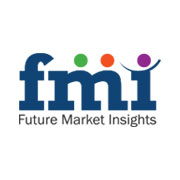The global protein A resin market is expected to increase at a y-o-y growth rate of over 7% and reach US$ 380.4 Mn in revenues in 2016. North America, Asia Pacific excluding Japan (APEJ), and Western Europe will collectively account for nearly 70% revenue share of the market in 2016. Increasing process efficiency, growing preference for e-distribution channels and strategic integration of supply chains are some of the major trends impacting the growth of the global protein A resin market.
The wide range of therapeutic applications of monoclonal antibodies will lead to more research and improved focus on biotechnology sector, resulting into increasing demand for protein A resins. Favourable government policies – in terms of formulation of suitable policies for startups and administration of funding for development of next-gen medical products — are expected to play an important role in driving growth. Development of cost-effective protein A resin is also expected to boost the growth of the market in 2016 and beyond. In contrast, efficacy of alternate purification methods of monoclonal antibodies and high cost (US$ 15,000 – US$ 16,000 per litre) will continue to pose challenges for widespread adoption.
On the basis of product-type, natural protein A resins are expected to outsell recombinant protein A resins. Demand for natural and recombinant protein A resins will be fuelled by the favourable results of the therapeutic uses of monoclonal antibodies. The recombinant protein A resins segment is expected to surpass US$ 135 Mn in revenues in 2016, up from nearly US$ 125 Mn in 2015.
Request Free Report Sample@ http://www.futuremarketinsights.com/reports/sample/rep-gb-1720
Agarose-based protein A resins will remain the largest segment by matrix type, accounting for over 85% revenue share of the market in 2016. Demand for glass/silica-based and organic polymer-based protein A resins will decline, owing to higher adoption of agarose-based protein A resins.
The antibody purification applications of protein A resins will continue to hold leading market share in 2016, while the immunoprecipitation application segment’s market share is expected to reach 23.5%. Biopharmacuetical manufacturers will remain the prominent end-users of the global protein A resins, followed by clinical research labs and academic institutions.
Increasing number of clinical trials on biologics will continue to have a positive impact on protein A resins market in North America. The demand for protein A resins in APEJ region is expected to increase due to growing research on monoclonal antibodies in India and China.
Speak To Analyst@ http://www.futuremarketinsights.com/askus/rep-gb-1720
General Electric Company and Thermo Fisher Scientific Inc. are among the leading players in the global protein A resin market. Emerging players Merck Millipore and REPLIGEN CORP., are focusing on increasing market share by strategic collaborations, while expansion of product portfolio in life science and research catalogues remains a key business strategy for Novasep and GenScript.
Long-term Outlook: The global protein A resin market is expected to increase at a CAGR of 8.2% in terms of revenues during the forecast period 2016-2026. North America and APEJ will continue to be the leading markets during the forecast period.

